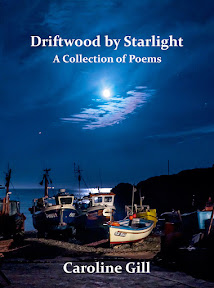 |
| Heidi Williamson (photo courtesy of Heidi) |
Have you ever wondered exactly what it takes to prepare a first full-length poetry collection?
I went on a brilliant workshop today led by Bloodaxe poet, Heidi Williamson. The pieces in Heidi's first collection, 'Electric Shadow', which I couldn't resist buying, have been described by Poetry Book Society selectors, Moniza Alvi and Paul Farley, as ...
‘Poems which display an incisive mind,
a powerful imagination
a powerful imagination
and an equally impressive purchase on language.’
I very much look forward to reading these at leisure.
Heidi, a prize-winning poet, held a two year residency at the Science Museum’s Dana Centre in London. She is currently serving as Poet-in-Residence at the John Jarrold Printing Museum in Norwich. These opportunities have afforded her the opportunity to move out of her comfort zone (as I believe she said), and to embark on a series of explorations into the multi-faceted worlds of science and technology, worlds that are not often associated with our perhaps limited perception of those 'traditional spheres' of poetry.
I first met Heidi some weeks ago when she travelled to Ipswich to join the Café Poets at Arlingtons. There was little chance to talk then, but I was excited when I heard that she was running a course, and was thankful that our house move didn't quite overlap with the day in question!
So what did we do in the workshop? Well, we were encouraged to attempt exercises that helped us to focus and think more incisively about the nature of our embryonic future collections. We were also given step-by-step guidelines to follow. We were made aware not only of helpful tips but also of common pitfalls to avoid along what can be for some - if not for many - an uncertain route towards publication.
I won't go into more explicit details because it is possible that you may choose to take the opportunity of attending one of Heidi's future workshops for yourself. Suffice to say that Heidi took a very comprehensive approach to her topic, providing her participants with an extremely enjoyable and valuable way of spending a Saturday. I have come home with much to think about and a wad of practical handouts to read and digest. I look forward to following through some of the books that were recommended - and I feel far more equipped for the next leg of my own exciting and doubtless unique journey into the world of poetry and its publication.
Thank you, Heidi, for an inspiring and challenging day!












